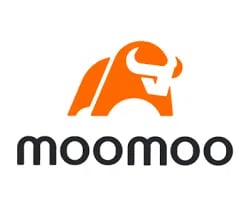4 Best Brokers to Buy Penny Stocks: 2026 Picks
+ 1 more
+ 2 more
Many or all of the products on this page are from partners who compensate us when you click to or take an action on their website, but this does not influence our evaluations or ratings. Our opinions are our own.
The investing information provided on this page is for educational purposes only. NerdWallet, Inc. does not offer advisory or brokerage services, nor does it recommend or advise investors to buy or sell particular stocks, securities or other investments.
Why trust NerdWallet
Our deep, independent analysis of online brokers sorts through key account details to find and evaluate the information investors want when choosing an account. To see our full methodology and learn more about our process, read our criteria for evaluating brokers.
Over 60 investment account providers reviewed and rated by our expert Nerds.
More than 50 years of combined experience writing about finance and investing.
Hands-on testing of the account funding process, broker websites and stock-trading platforms.
Dozens of objective ratings rubrics, and strict guidelines to maintain editorial integrity.
Penny stocks are risky, low-cost investments, though they don’t actually cost a penny. They are shares of small companies that trade outside of major stock exchanges, and are also known as over-the-counter (OTC) stocks.
The precise definition of penny stocks will vary by broker. Some consider anything trading under $5 to be a penny stock, while others put the cutoff at $2 or $1. (For more on penny stock trading, see our article on investing in penny stocks.)
Penny stocks may seem like a steal when stacked against companies that trade for $500 or more. This is where the backstory is important: These stocks are cheap for a reason. Because they are issued by small, yet-to-be-established companies, penny stock values can be turbulent. They are often hard to research and accurately value, and they trade infrequently, which means they can be tough to sell. (Here are other ways to find cheap stocks beyond penny stocks.)
Long story short, many brokers are a bit antsy about penny stock trading. This can make figuring out where to buy penny stocks more challenging than other investments. Below are NerdWallet’s picks for the top brokerages for penny stock traders. These four brokers don't impose any additional fees or investment restrictions on domestic penny stocks.
Best Brokers to Buy Penny Stocks: 2026 Picks
| Broker | NerdWallet rating | Fees | Account minimum | Promotion | Learn more |
|---|---|---|---|---|---|
4.6/5 | $0 per trade | $0 | Get up to $1,000 in stock when you open & fund a new Active Invest account. Terms & Conditions Apply. | Learn moreon partner's site on SoFi Invest®'s website | |
4.5/5 | $0 on trades of stocks, ETFs and their options. Other fees may apply. | $0 | 1 Free Stock after linking your bank account (stock value range $5.00-$200) | Learn moreon partner's site on Robinhood's website | |
4.1/5 | $0 | $0 | Earn 8.1% APY on your uninvested cash for 3 months + up to 60 Free Stocks with qualified deposits. Terms & Conditions apply. | ||
4.1/5 | $0 per trade | $0 | Get up to $600 when you invest in a new Merrill account |
- Learn moreon partner's siteon SoFi Invest®'s websiteNerdWallet rating4.6/5Learn moreon partner's siteon SoFi Invest®'s website
Fees
$0
per trade
Account minimum
$0
Promotion
Get up to $1,000
in stock when you open & fund a new Active Invest account. Terms & Conditions Apply.
Our Take
ProsNo commission for ETF, options and stock trades (including all OTC stocks).
Beginner-friendly platform that offers access to financial advisors.
ConsLimited selection of alternative assets such as crypto, forex and futures.
Few research & data offerings.
Why We Like ItSoFi Active Investing is a great choice for OTC stock traders, as it offers no-commission trades and puts no investment restrictions on penny stocks. However, traders who want access to exotic assets such as forex and crypto — or who want third-party research to inform their trading decisions — may need to look elsewhere.
- Learn moreon partner's siteon Robinhood's websiteNerdWallet rating4.5/5Learn moreon partner's siteon Robinhood's website
Fees
$0
on trades of stocks, ETFs and their options. Other fees may apply.
Account minimum
$0
Promotion
1 Free Stock
after linking your bank account (stock value range $5.00-$200)
Our Take
ProsFree ETF, options and stock trades (including all OTC stocks and fractional shares).
Streamlined interface.
Cryptocurrency trading.
ConsLittle third-party research.
Lower than average execution quality.
Why We Like ItRobinhood offers free ETF, options, crypto and stock trades (including all OTC stocks). It's also a leader in mobile-first design for brokerage apps, and provides a streamlined trading interface. However, Robinhood doesn't offer much in the way of third-party research, and its execution quality is slightly below average.
- NerdWallet rating4.1/5
Fees
$0
Account minimum
$0
Promotion
Earn 8.1% APY
on your uninvested cash for 3 months + up to 60 Free Stocks with qualified deposits. Terms & Conditions apply.
Our Take
ProsFree ETF, options and stock trades (including most OTC stocks).
Popular, easy-to-use app.
Low margin rates.
ConsLower than average execution quality.
Small commissions on foreign stock trades.
Why We Like ItMoomoo users can trade U.S.-listed ETFs, equity options and stocks (including OTC stocks) without any fees, in an easy-to-use app with low margin rates. However, Moomoo's execution quality could be better, and it does charge a commission of a few pennies per share on foreign-listed stock trades.
- NerdWallet rating4.1/5
Fees
$0
per trade
Account minimum
$0
Promotion
Get up to $600
when you invest in a new Merrill account
Our Take
ProsFree ETF and stock trades (including all OTC stocks).
Integrated with Bank of America.
High order execution quality.
ConsNo fractional shares.
Limited selection of alternative assets.
Why We Like ItMerrill Edge is a great choice for penny stock traders who have a Bank of America account, as it's integrated into Bank of America's app, and offers free trades of all OTC stocks with high order execution quality. However, fractional shares and alternative assets such as crypto and futures, which may also appeal to penny stock traders, are not available.
Choosing a penny stock broker
In case the above didn’t make this clear: There are significant risks that come with trading penny stocks, unless you are a sophisticated investor and you understand this market. You'll also want to be aware of the following when selecting an online broker to trade penny stocks:
Additional fees: Most of the brokers we review have eliminated trading commissions for stocks, so long as those stocks are well-established and trade on major U.S. exchanges such as the NYSE and Nasdaq. But many brokers still charge some kind of trading fee for OTC stocks and foreign stocks that aren't officially listed on U.S. exchanges. Only a few brokers are commission-free for penny stock traders, but we've made our list exclusive to brokers that don't charge commissions.
Limited penny stock selection: Some brokers only offer a small selection of relatively-established OTC stocks to investors, and others only offer one-off penny stock trades on request. If you're looking to trade especially-obscure penny stocks, you may find that many brokers don't allow access to them.
If you’re still on the fence about penny stocks, learn more about some of your other investment options:
Last updated on February 1, 2026
Methodology
NerdWallet’s comprehensive review process evaluates and ranks the largest U.S. brokers by assets under management, along with emerging industry players. Our aim is to provide an independent assessment of providers to help arm you with information to make sound, informed judgements on which ones will best meet your needs. We adhere to strict guidelines for editorial integrity.
We collect data directly from providers through detailed questionnaires, and conduct first-hand testing and observation through provider demonstrations. The questionnaire answers, combined with demonstrations, interviews of personnel at the providers and our specialists’ hands-on research, fuel our proprietary assessment process that scores each provider’s performance across more than 20 factors. The final output produces star ratings from poor (one star) to excellent (five stars).
This list is based on our OTC access score, which measures the size of a broker's OTC stock selection, whether OTC stocks are subject to additional fees, and whether OTC trades are available by default or have to be requested. Merrill Edge, Moomoo, SoFi Active Investing and Robinhood are the only brokers we review that earned the highest possible score in this category, meaning that they offer an unlimited selection of domestic OTC stocks to all users without any additional fees.
For more details about the categories considered when rating brokers and our process, read our full methodology.




